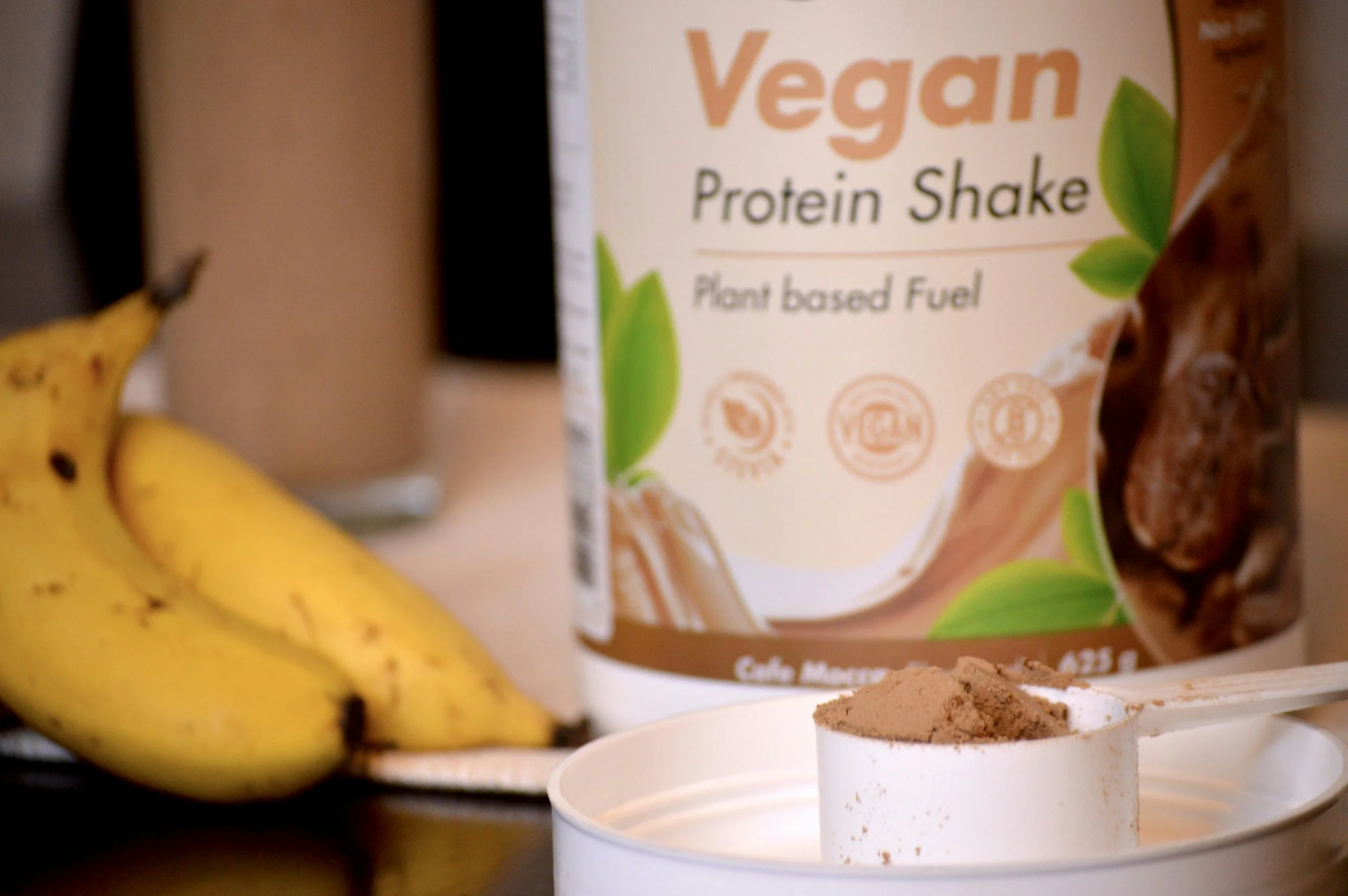Written by Evelyn Calado, MKin, CSCS, RKin
Living in Vancouver means dealing with long, dark winters and very little direct sunlight. Because vitamin D is made in the skin through UVB exposure, people living at northern latitudes are at a much higher risk of vitamin D deficiency. Even active people who train regularly or spend time outdoors often assume they are getting enough, but research shows that vitamin D levels are commonly low in Canada (and globally too). For athletes, lifters, and anyone trying to support their health, recovery, and immune system, understanding how vitamin D works can make a meaningful difference.
What Vitamin D Actually Does
Vitamin D is often associated with bone health; and yes, it helps the body absorb calcium. But that’s just one of its many jobs.
Vitamin D is technically a fat-soluble hormone, and it interacts with receptors throughout the body. It plays a key role in:
Immune function
Inflammation regulation
Muscle strength and recovery
Mood and cognitive health
Bone remodeling and density
Vitamin D receptors are found in immune cells, muscle cells, and even in the brain. So when you’re low, it doesn’t just affect your bones; it can impact recovery, training capacity, and even your ability to fight off colds or feel mentally sharp.
Most People Are Deficient and Don’t Know It
Multiple studies have shown that a large percentage of the population is vitamin D deficient, especially in northern latitudes.
If you live in Vancouver or anywhere else north of the 49th parallel, the odds are stacked against you. From October to April, we don’t get enough UVB rays from the sun for the body to produce vitamin D naturally. Even in summer, many people are indoors most of the day. And here’s something most people don’t realize: Wearing sunscreen blocks UVB rays, which are required for vitamin D synthesis.
To be clear, I am not telling anyone to skip sunscreen entirely or to intentionally burn themselves. Be smart. But understand that even if you go outside, if you’re wearing sunscreen, your body may still not be making enough vitamin D.
Vitamin D Recommendations for Athletes and Active Adults
In Canada, the current Recommended Dietary Allowance for vitamin D is:
600 IU per day for individuals aged 9 to 70
800 IU per day for adults over 70
These recommendations, established by Health Canada and the Institute of Medicine (Ross et al., 2010), are designed to prevent deficiency and maintain bone health. They aim to keep serum 25(OH)D above 50 nmol per L, which is considered the minimum threshold for sufficiency in the general population.
However, this RDA was created exclusively around bone-related outcomes, not broader health, immune, or performance considerations. Because of this, many vitamin D researchers argue that these intake levels are too low for individuals seeking optimal health or performance, including athletes (Heaney and Holick, 2011; Holick et al., 2011; Cannell et al., 2009).
Higher Intake Recommendations for Those With Limited Sun Exposure
The Endocrine Society provides a more practical guideline for people who do not obtain regular sun exposure, recommending:
1,500 to 2,000 IU per day of vitamin D3 (Holick et al., 2011)
This aligns closely with what I was taught in my graduate sport nutrition coursework.
Around 2,000 IU per day from autumn through spring can help maintain sufficient levels.
In some cases, individuals may still require additional supplementation in summer depending on lifestyle, skin pigmentation, indoor training, and geographic location.
Vitamin D Toxicity: Extremely Rare
Vitamin D toxicity is very uncommon and typically results from accidental consumption of extremely high supplemental doses due to manufacturing errors (Cannell et al., 2008; Holick, 2007).
Key safety points:
Ten thousand IU per day for up to five months has not been shown to cause toxicity in research (Holick, 2007)
Sunlight cannot cause vitamin D toxicity because the body naturally limits how much vitamin D it produces
My Experience with High-Dose Supplementation
For the past four years, I have personally taken ten thousand IU per day of vitamin D3. I recently paid for a private vitamin D blood test through LifeLabs. Despite consistently taking what is considered a high dose, my bloodwork showed I was only in the middle of the normal reference range.
This is not a prescription or suggestion that others should follow my exact protocol. It is simply to illustrate that if someone supplementing aggressively is barely hitting mid-range values, many others may be even lower than they realize.
When and How to Take Vitamin D
Take vitamin D with a meal that contains fat to enhance absorption
Always pair it with vitamin K2, to ensure proper calcium utilization and reduce any risk of calcification in the arteries
Ideally take it earlier in the day as vitamin D may influence circadian rhythms and melatonin production
Who Should Supplement
If you live in Canada, especially Vancouver or anywhere with long winters, the odds are high that your vitamin D levels are not optimal. Athletes, in particular, benefit from maintaining sufficient levels for:
Bone health and density
Immune support during periods of high training stress
Recovery and muscle repair
Mood and mental focus
Even if you are not experiencing symptoms, a blood test is the only way to know for sure. Ask your doctor or healthcare provider for a requisition. In BC, you can also request private testing through LifeLabs.
If you want support building a training plan the improves recovery, strength, and overall health, you can learn more about our services.
Key Takeaways
Vitamin D is essential for health, performance, and recovery
Most Canadians are low due to latitude, climate, and indoor living
Sunscreen blocks UVB rays needed to produce vitamin D
Six hundred to eight hundred IU per day may not be enough, especially for athletes
Vitamin D3 should be taken with fat and paired with K2
Blood testing is the only way to confirm your status
Always consult with a healthcare professional before making changes to your supplement routine
Bottom Line: Everyone Should At Least Consider It
In my opinion, almost everyone in Vancouver should be supplementing with vitamin D, especially through the fall and winter. It supports immunity, recovery, mood, and bone health. Unless you’re getting regular blood work, you probably don’t know if you are low.
For athletes and lifters, it is a low-cost, high-reward investment in your long-term health and performance.
Disclaimer
This post is intended for educational purposes only. I am a strength and conditioning coach, not a medical professional. Please consult your doctor or a registered healthcare provider before beginning any supplement protocol.
References
Cannell, J. J., Hollis, B. W., Sorenson, M. B., Taft, T. N., and Anderson, J. J. (2009).
Athletic performance and vitamin D.
Medicine and Science in Sports and Exercise, 41, 1102 to 1110.
Cannell, J. J., Hollis, B. W., Zasloff, M., and Heaney, R. P. (2008).
Diagnosis and treatment of vitamin D deficiency.
Expert Opinion on Pharmacotherapy, 9, 107 to 118.
Heaney, R. P., and Holick, M. F. (2011).
Why the IOM recommendations for vitamin D are deficient.
Journal of Bone and Mineral Research, 26, 455 to 457.
Holick, M. F. (2007).
Vitamin D deficiency.
New England Journal of Medicine, 357, 266 to 281.
Holick, M. F., Binkley, N. C., Bischoff-Ferrari, H. A., Gordon, C. M., Hanley, D. A., Heaney, R. P., Murad, M. H., and Weaver, C. M. (2011).
Evaluation, treatment, and prevention of vitamin D deficiency.
Journal of Clinical Endocrinology and Metabolism.
Ross, A. C., Taylor, C. L., Yaktine, A. L., and Del Valle, H. B. (2010).
Dietary Reference Intakes for Calcium and Vitamin D.
National Academies Press.






